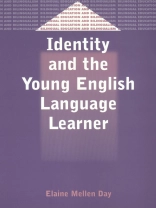This longitudinal, ethnographic case study examines the language socialization experiences of Hari, a Punjabi-speaking English language learner integrated in a mainstream kindergarten classroom in an urban area of British Columbia, Canada. The study uses sociocultural and critical/poststructural theoretical perspectives to explore the intimate connection between learning, identity and social membership in Hari’s learning path. The book highlights the political and affective dynamics of classroom relationships and their unconscious as well as conscious dimensions and should be of interest to all researchers, students, and educators involved with minority language children in educational contexts.
Mục lục
Acknowledgments
1 Introduction
2 Theory and Literature
3 Methodology
4 Hari: His School, Teacher and Classroom and Language at Home and at School
5 Hari and his Classmates
6 Hari and Casey, a Newcomer
7 Hari and his Teacher
8 Conclusions
References
Appendix: Transcription Conventions
Index
Giới thiệu về tác giả
Elaine Day is a Research Associate at Simon Fraser University (Vancouver, Canada). She is co-author of the book Studies in Immersion Education published by Multilingual Matters. Currently she is studying the language socialization experiences of minority language and French immersion children in late elementary school and is a member of the Canadian Language and Literacy Research Network.












